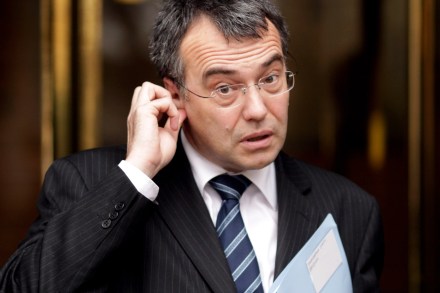Labour’s Woolas trouble
This Phil Woolas business is fast becoming a rather large problem for Ed Miliband. Those Labour MPs who are organising a fighting fund for Woolas are effectively defying the party leadership. Remarkably, he is on course to raise £50,000 by Friday. There is a whole slew of explanations for why Labour MPs are, to borrow a phrase, standing by Phil. First of all, the idea of judges overturning election results isn’t popular. Second, he’s a well-liked and sociable colleague, and no one who has fought a Lib Dem has much sympathy with their complaints about dirty tactics. But after these explanations, we move into more murky territory. There is still
















